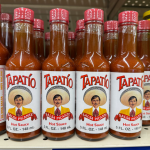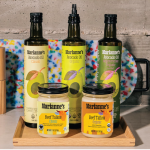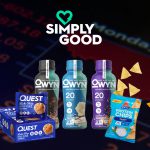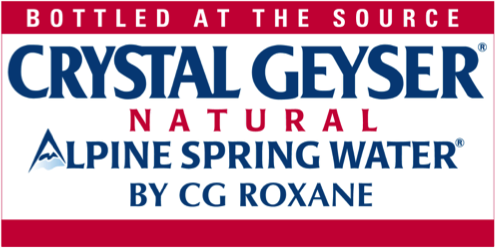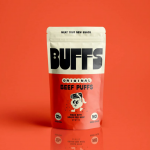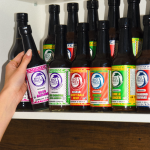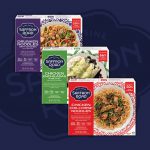Modernizing the Milkman Model, Zero-Waste Platforms Aim to Make Sustainable Grocery Shopping Accessible
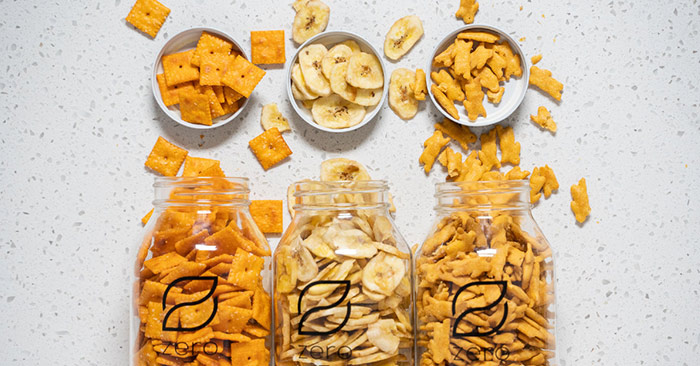
In many ways, the onset of the pandemic threatened to turn back the clock on any progress made in establishing more eco-friendly grocery shopping systems, as it brought on renewed interest in single-use plastics, bans on reusable bags and refillable cups and a decline in plastic recycling rates. But some new grocery startups and stores are gaining momentum as they fight this resurgence in disposability, updating the milkman model and adapting to changing consumer behaviors. Is the time right for zero-waste grocery platforms aimed at making sustainable shopping more accessible?
While most launched pre-pandemic, online zero-waste grocery platforms have experienced accelerated growth, like many e-grocers have, since COVID-19 hit the U.S. in March and many shoppers quickly shifted their grocery shopping online. One of the most prominent of these is TerraCycle-owned waste-free CPG delivery platform Loop, which works with companies like Pepsico and Nestle to develop reusable containers for its products, accelerating its nationwide expansion earlier this year due to consumer demand.
Other startups are finding success in local markets. Launched in January 2019, San Francisco-based grocery delivery platform Zero Grocery closed a $3 million seed round last month. The platform offers a variety of products from Annie’s Cheddar Bunnies to Late July tortilla chips packaged in Zero-branded reusable glass jars and glass packaged beverages such as GT’s Kombucha and Chameleon Cold Brew. It charges $25 a month for the regional delivery service, while non-members can pay $7.99 for one-time delivery. Regardless of the packaging type, Zero takes back all containers after customer use to be cleaned and reused, establishing a closed loop system for both its members and manufacturers.
With the funding, Zero founder and CEO Zuleyka Strasner said the platform aims to expand its reach, likely to Los Angeles, as well as increase its product offerings (it currently sells around 900) and continue to build on its technology to eventually launch an app. While the zero-waste system has roots in 20th century milk delivery, Strasner said Zero is essentially the “milkman or milkwoman supercharged by technology.”
“That [milkman] model as it existed doesn’t work in today’s society, and there’s a reason why we stopped consuming that way,” she said. “It’s very difficult to track items, to return things like jars or containers, to sanitize them, to refill them. So there needed to be a tech-enabled architecture that made all of this happen and made all of this sit together.”
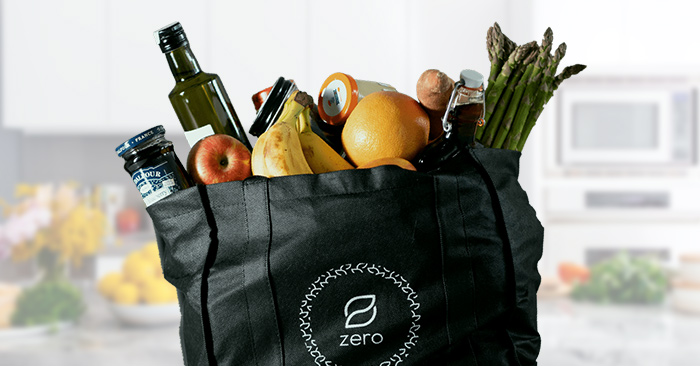
As the platform continues to scale, a main priority is affordability. With standard CPG grocery items, consumers are essentially paying for both the product inside and its packaging, Strasner noted. By buying products in bulk, she said Zero can offer products at prices 10% to 15% lower than many retailers. For example, a 7.5 oz. jar of Annie’s Cheddar Bunnies is offered for $2.99 on Zero, while the same sized box retails for $3.19 at Target.
Strasner said that for most consumers using the platform, this is their first time trying zero-waste grocery shopping, which is why she aimed to make joining Zero as easy as joining any other grocery delivery platform, with all products packaged in a Zero tote and delivered straight to the consumers’ doorstep.
“For this movement to work, it’s really about getting folks who thought that this was inaccessible to them,” she said.
While the platform works with many national brands, Strasner said the platform also aims to support local and emerging brands, like San Francisco-based ocean-friendly snack brand 12 Tides, to encourage new product and brand discovery. Another waste-free grocery delivery startup, The Wally Shop, is also working to support small brands. The platform, which launched in 2018 with a bike courier delivery service, also expanded nationwide amid the pandemic and follows a similar model to Loop. To give smaller brands the opportunity to sell their products in sustainable packaging, The Wally Shop this month launched The Fulfilled by Wally Limited Release Program, working with natural food and personal care brands for week-long releases on its platform. The program, running through mid-December, includes emerging natural food brands Simplified Superfoods and Gwell.
The Wally Shop founder and CEO Tamara Lim, who previously served as a category manager for Amazon, said in a press release about the program that while brands adapting their own packaging to be reusable and sustainable may be an expensive endeavor, “building a sustainable business is not, because you can be more efficient with your resources,” which allows brands of all sizes to more easily offer products in a closed loop system.
“If we build a service that offers all the same aspects of modern day convenience and lower prices, we can make sustainability the norm,” she said.
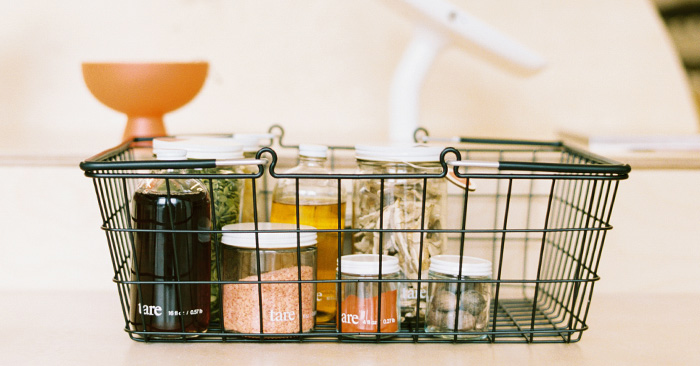
Other new ventures such as Los Angeles’ Tare Grocery are looking to provide more sustainable yet accessible and convenient processes for those who prefer in-store shopping. While grocery stores with bulk bins are nothing new, they most often require customers to use plastic bags provided by the store rather than their own reusable containers. Looking to update a grocery shopping model that “hasn’t been reinvented in quite some time,” husband and wife duo Lauren and Joseph Macrino opened zero-waste grocery store Tare in April, which offers over 600 organic products from grains and dried fruit to kombucha, plant-based milks, tea and coffee in bulk, allowing shoppers to fill up reusable containers. The new shop joins a small but growing crop of zero-waste grocery retailers popping up across the country, including New York City’s Precycle and Colorado’s Zero Market.
Due to the pandemic, the number of shoppers allowed in store at one time is limited, and Tare has abandoned its self-serve model for the time being. Originally, the customers would enter the store and weigh their own containers, with the weight removed from the price at checkout [the “Tare” that checkout and deli veterans will recognize] so customers would only pay for what was in the container. Those without their own containers may also use the 100% post consumer recycled paper bags provided by the store. Now, Tare’s staff serves as “personal shoppers” for customers, dispensing all grocery items themselves.
Tare works with brands such as powdered latte brand Clevr Blends, spice brand Diaspora, kombucha maker M Kombucha and plant-based milk brand Goodmylk Co. The store buys all of its products from brands in bulk — often working with brands who don’t typically offer their products in this format — collaborating with brands to establish efficient processes for doing so. For example, manuka honey brand Activist worked with their packaging facility to create a five gallon container of honey, while coffee maker Canyon Coffee deposits freshly roasted beans directly into Tare’s provided bins, so there’s no packaging involved in the fulfillment. While the uniform nature of the containers throughout the store could hinder brand visibility, Lauren Macrino said the store makes sure to call out brands with labels and product descriptions.
The store offers pick-up and local delivery, but right now it believes shipping its products would “defeat the purpose” in terms of sustainability. Joseph Macrino said the owners set up the store to be scalable, with easily replicable systems and protocols, and they ultimately hope to open additional stores in the Los Angeles area.
“I really, truly feel that a lot of people have been waiting for [zero-waste grocery stores],” Lauren Macrino said. “I just feel like it’s time. I feel like even during this time of COVID and climate change and everything that’s going on, people are ready for a change. It’s showing that things are not necessarily sustainable.”
Though their platforms may use different processes, both Zero and Tare are focused on accessibility. For Joseph and Lauren Macrino, having organic products available at prices competitive with other retailers was essential and the choice to accept EBT was a “no brainer.” Strasner emphasized that sustainability and environmentalism exist on a spectrum, and consumers’ approach to limiting waste does not necessarily need to be all or nothing. These new ways of shopping, whether they be brick-and-mortar stores or online platforms, ultimately exist to “create transparency around what it means to consume.”
“Sustainability overall can be daunting,” Strasner said. “We want millions and millions of Americans living environmentalism or zero-waste imperfectly, rather than just a handful of us living orthodoxly or perfectly. My role is to empower my members and say ‘There’s an alternative here, and it’s ready-made, and it’s done for you, so help us continue to build this.’”
